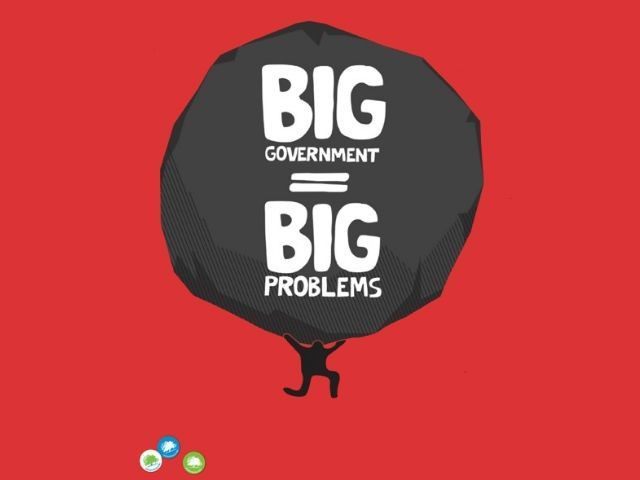 by Jaana Woiceshyn
by Jaana Woiceshyn
Many people take government involvement in the economy for granted. They agree that government should determine, among other things:
- who companies should hire (equal opportunity/affirmative action legislation),
- how much and how to compensate employees (minimum wage laws, insider trading laws) and how to protect their health and safety (health and safety regulations),
- with whom companies can collaborate (anti-trust laws),
- how much emissions companies can release (e.g., carbon taxes and carbon emissions caps),
- whether and where companies can build oil and gas pipelines (government approvals, environmental regulations), and
- how much of their profit companies can keep (taxation).
All of the above government interventions in the economy, the last three in particular, have contributed to the decline of investment in the Canadian oil and gas industry, one of the most important wealth creators in the country’s economy. According to Statistics Canada, the oil and gas companies’ capital expenditures dropped by 58% from their peak of $80 billion in 2014 to the end of 2018. As well, a number of foreign oil companies have pulled out of Alberta, Canada’s center of oil production.
By imposing controls such as those listed above, government harms companies and the rest of us.
By telling companies who they should hire and what and how to pay them, government prevents business from hiring the most qualified candidates and motivating them appropriately and thus hinders productivity and competitiveness. By imposing various regulations and minimum standards, government stifles innovation (e.g., new products, services, processes, and creative solutions to such problems as workplace and product safety and air, water or soil pollution). By imposing various regulations and taxes, government chases away investment, as in the case of the Canadian oil and gas industry.
The myriad government controls on business are based on the assumption that government is needed to direct the economy to function efficiently, to ensure “fair redistribution” of the wealth created in the economy.
As for directing the functioning of the economy, there is no evidence that it has ever succeeded—only mountains of evidence of governments’ failures to do so. What could politicians and bureaucrats teach businesspeople about creating wealth?
Government’s “fair redistribution” schemes also hurt everybody. They hurt business by reducing the incentive to produce and to create wealth, which in turn hurts everyone else because less wealth is invested. This means fewer job opportunities, lower wages, fewer products and services, and often, higher prices.
Government intervention in the economy is harmful, as it reduces prosperity and wellbeing. But business and the rest of us still need government—albeit only for one purpose: the protection of individual rights to life, liberty, property, and the pursuit of happiness.
Protection of individual rights is the only deterrent that is needed against any potential wrong-doing by or against business, whether it involves employees, customers, competitors, investors, or anyone else. Endangering anyone’s life or safety brings government sanctions, as do violations of property rights (such as theft, fraud, or pollution of others’ property).
The limited role of government means only three functions: the armed forces (to protect citizens against foreign invaders), the police (to protect against common criminals), and the law courts (to protect contracts). The last function is arguably the most important for business which depends on the adherence to and the enforceability of contracts.
Beyond protecting individual rights, government should leave business free to compete and trade the best way it sees fit, whether that involves hiring and compensating employees, collaborating with other companies, or producing oil and building and operating pipelines.
Government cannot determine what is in our interest since there are no collective interests, only interests of individuals that only they themselves can—and must be left free—to choose.



Comments 1
If Democracy does not have as its primary goal the protection of individual Liberty it become an act of blind faith, submission or worst such as fear of Government.
Unlimited Democracy is far from a guaranty of Individual Freedom.
Without freedom democracy is a chimera.